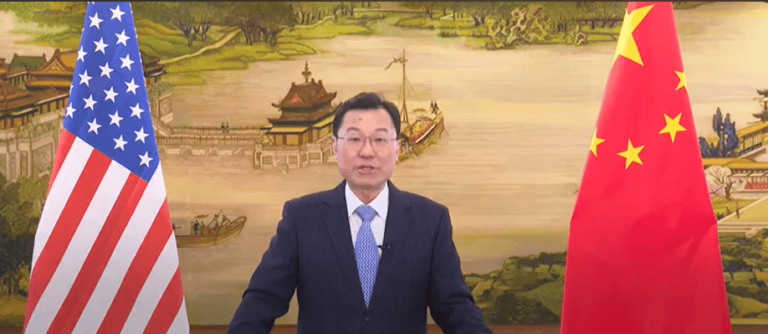Republicans are reluctant to bring up the assault of the Capitol. You are taking a significant risk by avoiding a split with Donald Trump.
Was there anything? Nothing particularly noteworthy occurred on January 6, 2021, based on the actions of the Republican Party in the United States. Few of their representatives will attend today’s remembrance in Congress.
Conservative members of Congress dodge questions about their former President Donald Trump’s role in attempting to disrupt a democratic election by force. The right-wing media mocks the riot’s exuberance.
In addition, Trump postponed a counter-press conference scheduled for the anniversary on Wednesday evening. With that, he grudgingly accepted the reading that quiet was the best technique, at least on this day.
If the situation weren’t so terrible, Republican lawmakers could be compared to children who close their eyes to make things go away. The violence, from which they remove themselves insufficiently or not at all, does not vanish just because it is disregarded.
Threat to American Civil war
On the contrary, the risk that their silence, their failure to distance themselves from the American stab in the back narrative of the twenty-first century, would encourage the deluded forces inside their own ranks is significant. Furthermore, there are troubling initiatives to make voting more difficult in the states in charge of organizing the election.
So, was January 6th simply a foreshadowing of new, violent times, even a civil war, as some experts predict? Will the next election be determined not at the polls, but by string pullers strategically placed around the country? Will Trump, if he runs, be able to carry out his coup plot the next time?
Even though optimism is particularly tough on certain days and nothing appears inconceivable in the realm of limitless possibilities since the Trump era at the most recent: it should be reminded that Americans were able to defeat a dangerous populist in an election.
Furthermore, despite surveys showing that more than two-thirds of Republicans accept Trump’s “Big Lie” claim of a stolen election, the majority of Americans do not. In other regions, it is also clear that Republicans perform better in elections if Trump is no longer included on the ballot.
None of this justifies the all-clear. And definitely no reason to absolve Republicans of blame for passing up the opportunity to split with Trump after January.
But the Democrats have a role to play as well. They, too, should avoid undermining faith in the country’s democratic institutions, such as by referring to the Supreme Court as a “Trump court” since it has become more conservative under the former president.
And would the Democratic Party now accept an election outcome that was as close, contentious, and ultimately determined by the Supreme Court as the one between George W. Bush and Al Gore in 2000? Most likely not. That is also debatable.
It is tough to regain lost trust. It is not insurmountable. The strongest antidote to populists is and will continue to be effective government work, but it must also be properly discussed.
In the “New York Times,” Thomas Friedman suggests focusing more on positive news as the most powerful defense against Trump’s comeback and a repetition of January 6th. And his colleague Paul Krugman emphasizes the importance of economic recovery, which is underappreciated.
At the same time, all Republican elected leaders who know better – and there are some – must speak frankly about Trump’s threat. Silence on this topic is poison, not gold.










+ There are no comments
Add yours